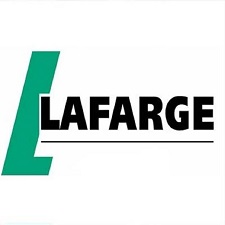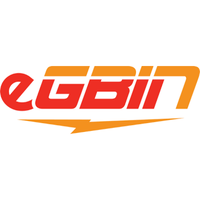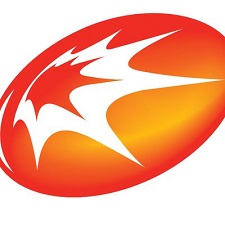Job Openings at United Nations International Children’s Emergency Fund (UNICEF) – 5 Positions
United Nations International Children's Emergency Fund (UNICEF) works in some of the world’s toughest places, to reach the world’s most disadvantaged children. To save their lives. To defend their rights. To help them fulfill their potential. Across 190 countries and territories, we work for every child, everywhere, every day, to build a better world for everyone.
We are recruiting to fill the following positions:
1.) Security Officer (Borno)
2.) Programme Budget Specialist (Grants Management) P3, TA (Abuja)
3.) Consultant
4.) Social Policy Specialist (Bauchi and Sokoto)
5.) Information Management Officer (Borno)
(adsbygoogle = window.adsbygoogle || []).push({});
See job details and how to apply below.
1.) Security Officer
Job Number: 533795
Location: Maiduguri, Borno
Work Type: Temporary Appointment
Purpose for the Job
- Under the direct supervision of the Field Security Specialist, the Security Officer provides professional technical, operational and administrative assistance to the field office to manage a range of activities on security planning, management and risk assessments to ensure the safety and security of personnel and their eligible family members and safeguarding of UNICEF premises, assets and resources at the duty station.
- S/He will assist in activities aimed at facilitating access to security-compromised areas in North-Eastern Nigeria particularly in Borno, Yobe and Adamawa States.
- Specific attention will be given to those areas where access is required to ensure that programme delivery is conducted in as safe and secure a manner as possible, within the scope of the UN Framework of Accountability and UN Security Management System.
- The Security Officer may also be required to liaise with key Army Officers in order to negotiate local access for programme activities.
Key Function, Accountabilities and Related Tasks
Security Risk Management and Planning:
- Provide supervisor with input related to the safety and security of UNICEF personnel and eligible family members, premises, assets, and resources in accordance with UN and UNICEF Security Management Systems. Participate as a member of the security coordination cell established by United Nations Department of Safety and Security (UNDSS).
- Assist in the implementation of all technical security requirements contained in the UN Security Plan, Security Risk Management Measures, Residential Security Measures (RSM) as appropriate, and other relevant policies, guidelines, and assessments. Provide technical support for contracted security providers.
- Provide technical input to UNICEF security documentation including security contingency plans and assist in drafting mandatory reports in accordance with UNICEF security reporting guidelines including Security Incident Reports (SIRs).
Safety and Security Services:
- Monitor the security situation and provide information, through the supervisor, on emerging security threats to UNICEF personnel and eligible family members, premises assets and resources.
- Keep abreast of political, military, security, and economic developments in North-Eastern Nigeria that could impact staff safety and security.
- Assist in security activities that support UNICEF operations and participate, as requested, in security risk management for all locations where UNICEF personnel and eligible family members are present.
- Ensure that UNICEF personnel are kept informed of matters affecting their safety and security and the actions to take in the event of an emergency including those identified in the UNICEF/UN Security Plans.
- Support the establishment of an effective and functioning communications system for security management within UNICEF that is fully integrated into the UN Emergency Communications System.
- Coordinate with UNDSS to ensure all UNICEF personnel undertake all mandatory security training/briefings and participate in all security-related contingency exercises. Assist in the implementation of security surveys of international personnel residences in accordance with the Residential Security Measures (RSM).
Security Networking and Partnership Building:
- In close coordination with UNDSS, actively participate and maintain official liaison with host government agencies, local authorities responsible for security, law and order, and counterparts in the UN.
- Support the effective collaboration between UNICEF, other UN agencies, international NGOs and government, on security-related issues pertaining to NE Nigeria.
- Develop and maintain productive relationships with key individuals in relevant government departments, including the military hierarchy in the ongoing theatre of operations and Security officers of UN Agencies/Funds/Programmes, and other relevant individuals as appropriate.
Innovation, Knowledge Management and Capacity Building:
- Identify, capture, synthesize and share lessons learned for knowledge development and to build the capacity of stakeholders.
- Implement capacity building initiatives to enhance the competencies of clients/stakeholders on security-related preparedness and operations.
Minimum Requirements
Education:
- A University degree in one of the following fields is required: Security Risk Management, International Relations, Conflict Analysis, Intelligence Analysis, Diplomatic Studies, Conflict and Security, Counter-Terrorism or another relevant technical field.
Experience:
- A minimum of two years of professional experience in global security risk management and/or security analysis is required.
- Demonstrated international security management experience and understanding of the United Nations Security Management System is highly desirable.
Language Requirements:
- Fluency in English is required. Knowledge of local language of the duty station (Hausa and/or Kanuri) is considered as an asset.
Competencies and level of proficiency required
Core Values:
- Care
- Respect
- Integrity
- Trust
- Accountability.
Core Competencies:
- Nurtures, Leads and Manages People (1)
- Demonstrates Self Awareness and Ethical Awareness (2)
- Works Collaboratively with others (2)
- Builds and Maintains Partnerships (2)
- Innovates and Embraces Change (2)
- Thinks and Acts Strategically (2)
- Drives to achieve impactful results (2)
- Manages ambiguity and complexity (2)
Application Closing Date
10th September, 2020.
How to Apply
Interested and qualified candidates should:
Click here to apply online
Important Information / Notice
- View our competency framework at: http://www.unicef.org/about/employ/files/UNICEF_Competencies.pdf
- UNICEF is committed to diversity and inclusion within its workforce, and encourages all candidates, irrespective of gender, nationality, religious and ethnic backgrounds, including persons living with disabilities, to apply to become a part of the organization.
- UNICEF has a zero-tolerance policy on conduct that is incompatible with the aims and objectives of the United Nations and UNICEF, including sexual exploitation and abuse, sexual harassment, abuse of authority and discrimination. UNICEF also adheres to strict child safeguarding principles. All selected candidates will be expected to adhere to these standards and principles and will therefore undergo rigorous reference and background checks. Background checks will include the verification of academic credential(s) and employment history. Selected candidates may be required to provide additional information to conduct a background check.
- Only shortlisted candidates will be contacted and advanced to the next stage of the selection process.
- Qualified FEMALE candidates are specially encouraged to apply.
- Only Nigerian nationals.
2.) Programme Budget Specialist (Grants Management) P3, TA
Job Number: 532576
Location: Abuja
Work Type: Temporary Appointment
How Can You Make a Difference?
- Under the supervision of the Senior Health Manager (Chief, Immunization) and other Programme Staff, the incumbent will be responsible for monitoring, reviewing, compiling, and editing of English-language proposals and reports for donors, ensuring that they are in line with criteria set out in official guidelines and directives, and in line with agreement/stipulations.
- The incumbent will work also with Field office colleagues, Chief Field Operations, Chief of Supply and Finance as well as Programme Officer, (budget) to help monitor the large programme budget of over $100 million a year. And ensure accurate expenditure at field level, against appropriate grant.
Summary of Key Functions / Accountabilities
- Collaborate in the development and ongoing monitoring of Financial Resource Requirement (FRR) and budget execution including tracking of outstanding commitments.
- In consultation with Chief, Immunization develop donor budget and proposal based on field needs and annual section workplan, and in line with annual Gavi and GPEI-approved budget envelope.
- In collaboration with Data team, prepare and submit scheduled reports to donors on expenditures and activities achieved from funds received from that specific donor.
- Prepare management indicators reports
- Work with HQ Polio Finance team and Gavi team in Geneva to provide quarterly expenditure reports and analysis using Standard Codes.
- Participate in year-end closure of accounts by monitoring expenditures and commitments – working with colleagues to remedy any mis-allocations across grants and minimising unspent balances leading to grant expiry date.
- Act as focal point for the handling of all queries from headquarters, regional/country offices and Nigeria based staff, regarding programme budget, funding commitments and donor contributions
- Provide information on allotment accounts and availability of funds; advises and updates allotment lists
- Clearly communicate to field office colleagues the constraints of donor proposals and importance of aligning their activities to agreed budget.
- Request and analyse field-office Immunization and Polio budgets as submitted, ensuring accuracy against existing proposals and noting needs for future proposals.
Qualifications
To qualify as an advocate for every child you will have:
- Advanced university degree (Master’s or higher) in Business Administration, Project Management, Financial Management, Economics, Social Sciences, Communication, or other relevant fields; or a first university degree with a relevant combination of academic qualifications and experience.
- Minimum 5 years of relevant professional experience including 2 years of progressively responsible experience in contribution management and the development of donor reports and proposals.
- Developing country work experience and/or familiarity with emergency is considered an asset.
- Fluency in English is required. Knowledge of another official UN language or a local language is an asset.
For every Child, you demonstrate:
- UNICEF's values of Care, Respect, Integrity, Trust, and Accountability (CRITA).
The competencies required for this post are:
- Nurtures, Leads and Manages People (2)
- Demonstrates Self Awareness and Ethical Awareness (3)
- Works Collaboratively with others (3)
- Builds and Maintains Partnerships (3)
- Innovates and Embraces Change (3)
- Thinks and Acts Strategically (3)
- Drives to achieve impactful results (3)
- Manages ambiguity and complexity (3)
The functional competencies required for this post are:
- Analyzing (3)
- Deciding and Initiating action (2)
- Applying technical expertise (3)
View our competency framework here
Application Closing Date
2nd September, 2020; 23:55:00 GMT+0100 (West Africa Standard Time)
How to Apply
Interested and qualified candidates should:
Click here to apply online
Note
- UNICEF is committed to diversity and inclusion within its workforce, and encourages all candidates, irrespective of gender, nationality, religious and ethnic backgrounds, including persons living with disabilities, to apply to become a part of the organization.
- UNICEF has a zero-tolerance policy on conduct that is incompatible with the aims and objectives of the United Nations and UNICEF, including sexual exploitation and abuse, sexual harassment, abuse of authority and discrimination. UNICEF also adheres to strict child safeguarding principles. All selected candidates will be expected to adhere to these standards and principles and will therefore undergo rigorous reference and background checks. Background checks will include the verification of academic credential(s) and employment history. Selected candidates may be required to provide additional information to conduct a background check.
- Please note that this position is based in a family duty station classified at the "C" hardship level.
- This position is re-advertised for the sole purpose of further expanding the candidate pool. Previous applicants need not reapply as their original application will be duly considered. The VA is open to all Non-Nationals of Nigeria (internal and external candidates).
- Only shortlisted candidates will be contacted and advance to the next stage of the selection process.
(adsbygoogle = window.adsbygoogle || []).push({});
3.) Consultant
Job Number: 533822
Location: Nigeria
Work Type: Consultancy
Contract Duration: 2 months
Background
Micronutrients are vital vitamins and minerals required by human beings to stimulate cellular growth and metabolism. Micronutrient deficiencies (MNDs) greatly contributes to poor growth and development, reduced cognitive function, impaired immune and endocrine functions, increased risk of morbidity and mortality. There are nineteen micronutrients considered essential for optimal physiological functions; five of these micronutrients (Vitamin A, Iron, folate, Iodine, Zinc) are of public health importance. Specifically, Vitamin A deficiency (VAD) is the leading cause of blindness worldwide, it also causes impaired immune function, cell differentiation, measles and diarrhoeal diseases among children. Iron deficiency causes microcytic anaemia, impaired immune and endocrine functions. Folate deficiency in pregnant women causes neural tube defect and macrocytic anaemia. Iodine deficiency disorder causes goitre, mental retardation. Zinc deficiency causes increased incidence of diarrhoea and acute respiratory infection; both are among the leading cause of death in children under five years.
The burden of micronutrient malnutrition and deficiencies in key micronutrients such as iron, vitamin A, iodine, and zinc, is estimated to affect 2 billion people worldwide. Pregnant women, adolescents and young children who are undergoing rapid growth and development are the most vulnerable to micronutrient deficiencies and, consequently, suffer the greatest adverse effects. The Lancet Series on Maternal and Child Nutrition (Black, et al., 2013) estimated that 90 million children less than 5 years (33%) and 15% of all pregnant women suffer from subclinical VAD (based on a threshold of serum retinol < 0.70 μmol/L), the consequences of which lead to lowered immunity and increased risk of mortality in children (Ruel-Bergeron, et al., 2015).
Micronutrient deficiency (MND) remains a major public health concern globally, which is most common in many developing countries; especially in Southeast Asia and Sub-Saharan Africa, including Nigeria. MND is caused by one or more of the following factors: inadequate food intake, poor dietary diversity, poor bioavailability and presence of disease or infections. At least, 340 million children under 5 suffer from micronutrient deficiencies. Most common forms of are Vitamin A Deficiency (VAD), Iron Deficiency Anaemia (IDA) and Iodine Deficiency Disorder (IDD). Micronutrients deficiencies is responsible for an estimated 7.3% of the global burden of disease, with Iron and Vitamin A deficiencies ranking among the 15 leading causes of global burden of disease burden.
In Nigeria, the prevalence of anaemia among children under 5 is 68%. About 49% of non-pregnant WRA, and 58% of pregnant women are estimated to be anaemic and 31% are iodine deficient. Prevalence of anaemia in children 6‒59 months of age is 71% (The global prevalence of anaemia in 2011, WHO).
Purpose of Assignment:
- The purpose of the assignment is to develop a new National Micronutrients Deficiency Control Guideline for the Federal Ministry of Health to replace the one developed in 2013.
Task
- Scan: gather past and current evidence at the national and global level including WHO recommendations at a global level, other global level evidence, national policy, strategies and programme document.
- Review the 2013-2018 MNDC and pre-existing Guidelines, related nutrition policy documents, other guidelines, strategies and programme documents to identify gaps, lessons, best practices, scope and other information as inputs for the new guideline and to ensure coherence of the new guideline with national priorities, synergies and linkages.
- Facilitate stakeholders’ meetings
- Draft a new MNDC guideline and share/present in a stakeholder meeting.
- Consolidate stakeholders’ input into the MNDC guidelines, including follow up consultation and gathering additional information.
- Develop final MNDC guideline (final draft).
Qualifications or Specialized Knowledge / Experience Required
- A minimum of Master's Degree in relevant field (Nutrition, Public / Global Health, Epidemiology) with relevant experience in Nutrition.
- Minimum of eight (8) years of proven expertise in the development and/ or revision of health/ nutrition guidelines and strategies.
- Professional experience and/background in nutrition programming especially micronutrient deficiency control.
- Excellent communication skills in English language (written and verbal).
- Willingness to comply with UNICEF Harmonised Approach to Cash Transfer (HACT) approaches such as micro-assessments, spot-checks including at end-user level.
Application Closing Date
31st August, 2020 by 23:55:00 GMT+0100 (West Africa Standard Time).
How to Apply
Interested and qualified candidates should:
Click here to apply online
Note
- UNICEF's values of Care, Respect, Integrity, Trust, and Accountability (CRITA) and core competencies in Communication, Working with People and Drive for Results.
- UNICEF is committed to diversity and inclusion within its workforce, and encourages all candidates, irrespective of gender, nationality, religious and ethnic backgrounds, including persons living with disabilities, to apply to become a part of the organization.
- UNICEF has a zero-tolerance policy on conduct that is incompatible with the aims and objectives of the United Nations and UNICEF, including sexual exploitation and abuse, sexual harassment, abuse of authority and discrimination. UNICEF also adheres to strict child safeguarding principles. All selected candidates will be expected to adhere to these standards and principles and will therefore undergo rigorous reference and background checks. Background checks will include the verification of academic credential(s) and employment history. Selected candidates may be required to provide additional information to conduct a background check.
Remarks
- Only shortlisted candidates will be contacted and advance to the next stage of the selection process.
- Individuals engaged under a consultancy or individual contract will not be considered “staff members” under the Staff Regulations and Rules of the United Nations and UNICEF’s policies and procedures, and will not be entitled to benefits provided therein (such as leave entitlements and medical insurance coverage)
- Their conditions of service will be governed by their contract and the General Conditions of Contracts for the Services of Consultants and Individual Contractors
- Consultants and individual contractors are responsible for determining their tax liabilities and for the payment of any taxes and/or duties, in accordance with local or other applicable laws.
4.) Social Policy Specialist
Job Number: 533792
Locations: Bauchi and Sokoto
Level: NOC
Contract Type: Temporary Appointment
Duration: 1st August, 2020 - 29th July, 2021
Reporting to: Chief field Officer (Bauchi), Chief Field Officer (Sokoto)
How Can You Make a Difference?
- A challenging and exciting opportunity has arisen within UNICEF Nigeria for a passionate and committed Social Policy Specialist in the Abuja CO. Under the general guidance of the supervisor, the incumbent is responsible for providing technical support to the implementation, monitoring, and evaluation of all stages of social policy programing and related advocacy from strategic planning and formulation to delivery of concrete and sustainable results.
- This includes programmes aimed at improving (a) public policies to reduce child poverty; (b) social protection coverage and impact on children; (c) the transparency, adequacy, equity and efficiency of child-focused public investments and financial management; and (d) governance, decentralization and accountability measures to increase public participation and the quality, equity and coverage of social services.
- This encompasses both direct programme work with government and civil society partners as well as linkages and support to teams working on education, health, child protection, water and sanitation, and HIV.
Summary of Key Functions/Accountabilities
- Improving data on child poverty & vulnerability for increased use for policy and programme action
- Strengthening social protection coverage and impact for children
- Improving use of public financial resources for children
- Strengthening capacity of local governments to plan, budget, consult on and monitor child-focused social services.
- Strengthened advocacy and partnerships for child-sensitive social policy UNICEF Programme Management
Qualifications
To qualify as an advocate for every child you will have:
- An advanced university degree in one of the following fields: Economics, Public Policy, Social Sciences, International Relations, Political Science, or another relevant technical field.
- A minimum of five years of relevant professional work experience required.
- Experience working in a developing country is considered a strong asset.
- Background and/or familiarity with emergency is considered a strong asset
- Fluency in English. Knowledge of another official UN language or a local language is considered as an asset
For every Child, you demonstrate:
UNICEF's values of Care, Respect, Integrity, Trust, and Accountability (CRITA) and core competencies:
- Builds and maintains partnerships (II);
- Demonstrates self-awareness and ethical awareness (II);
- Drive to achieve results for impact (II);
- Innovates and embraces change (II);
- Manages ambiguity and complexity (II);
- Thinks and acts strategically (II)
- Works collaboratively with others (II)
- Nurtures, leads and manages people (II
The functional competencies required for this position are...
- Planning and Organizing [III]
- Formulating Strategies and Concept [II]
- Analyzing (III)
- Relating and Networking [II]
View our competency framework at here
Application Closing Date
31st August, 2020.
How to Apply
Interested and qualified candidates should:
Click here to apply online
Click here for more information (PDF)
Note
- UNICEF is committed to diversity and inclusion within its workforce, and encourages all candidates, irrespective of gender, nationality, religious and ethnic backgrounds, including persons living with disabilities, to apply to become a part of the organization.
- UNICEF has a zero-tolerance policy on conduct that is incompatible with the aims and objectives of the United Nations and UNICEF, including sexual exploitation and abuse, sexual harassment, abuse of authority and discrimination. UNICEF also adheres to strict child safeguarding principles.
- All selected candidates will be expected to adhere to these standards and principles and will therefore undergo rigorous reference and background checks. Background checks will include the verification of academic credential(s) and employment history. Selected candidates may be required to provide additional information to conduct a background check.
- Only shortlisted candidates will be contacted and advance to the next stage of the selection process.
5.) Information Management Officer
Job Number: 533750
Location: Maiduguri, Borno
Work Type: Temporary Appointment
Purpose of the Assignment
- A well-run cluster with Information Management is a formal deliverable of the Cluster Lead Agency and forms a part of the agency’s work.
- The Information Management Officer is a core Cluster Coordination team member. The purpose of this post is to manage the collection, analysis and sharing of information that is important for the Cluster participants to make informed, evidence-based, strategic decisions.
Major Responsibilities
- Respond to the Cluster participants’ needs for information
- Adapt existing in-country information management approaches for collecting, analysing and reporting Cluster activities and resources, and identifying information gaps
- Establish and maintain information databases that consolidate, analyse and report / disseminate information critical to decision making
- Maintain monthly reporting from Cluster participants, including 5Ws (‘Who does What, Where, When and for Whom?’ databases)
- Support the estimation of spatial and temporal gaps, overlaps and coverage of Cluster activities and projects.
- Work with Cluster / participants to identify information gaps at national and sub-national levels and propose ways to bridge those gaps
- Work with the OCHA Information Management Specialist to develop appropriate supportive strategies
- Use GIS for map production and geographic data management
- Adopt and promote the use of global standards for information management for inter-operability
- Manage flows of information and dissemination in an appropriate way, including website management
- Manage an inventory of relevant documents on the humanitarian situation
- Support the development and analysis of needs assessment and monitoring programmes
- Provide information management leadership in assessments and monitoring, including joint assessments and training
- Lead on the preparation of SitRep inputs with emphasis on Cluster plans, targets and achievements
- Develop and strengthen information management capacity through the training of Cluster members
- Contribute to the core cluster functions
- Ensure that there is effective communication, reporting, engagement and coordination between the national and sub-national clusters
Qualifications, Experience and Competencies Required
Education:
- University degree in a subject area relevant to Information Management is required.
- Extensive work experience relevant to the post with a university degree in any other discipline may be considered as a replacement for a university degree in information management.
- Formal training in cluster information management is an advantage.
Experience:
- Minimum 2 years of professional work experience in information management preferably with NGOs / INGOs and / or the UN is required. Experience in major emergency response relevant to the cluster is highly desirable.
Language Requirements:
- Fluency in English required. Working knowledge of the local language at the duty station is a strong asset.
Core Values:
- Care, Respect, Integrity, Trust, Accountability
Skills and Competencies:
- Understands key technical issues for the cluster sufficiently well enough to be able to: engage with cluster participants; understand their cluster-specific information management needs
- Excellent knowledge of MS Excel or MS Access (e.g. pivot tables and functions)
- Proven technical expertise for managing data capture and storage, for analysing diverse datasets, and presenting information in understandable tables, charts, graphs and reports
- Knowledge of establishing and managing basic websites (e.g. UNOCHA’s Humanitarian Response platform)
- Proven skills in GIS and in using map-making packages
- Skills in web design and software development are an asset
- Understands the rationale behind Humanitarian Reform, its main components and recent developments including the Transformative Agenda
- Understands uses and adapts the tools, mechanisms and processes developed as part of Humanitarian Reform
- Demonstrates commitment to Humanitarian Principles
- Demonstrates commitment to Principles of Partnership
- Communicates works and networks effectively with a wide range of people to reach broad consensus on a well-coordinated response, and demonstrates leadership where required
- Thinks and acts strategically and ensures that cluster activities are prioritized and aligned within an agreed strategy
- Demonstrates commitment to the cluster and independence from employing organisation
View our competency framework at: http://www.unicef.org/about/employ/files/UNICEF_Competencies.pdf
Application Closing Date
28th August, 2020; 23:55:00 GMT+0100 (West Africa Standard Time)
How to Apply
Interested and qualified candidates should:
Click here to apply online
Note
- UNICEF is committed to diversity and inclusion within its workforce, and encourages all candidates, irrespective of gender, nationality, religious and ethnic backgrounds, including persons living with disabilities, to apply to become a part of the organization.
- UNICEF has a zero-tolerance policy on conduct that is incompatible with the aims and objectives of the United Nations and UNICEF, including sexual exploitation and abuse, sexual harassment, abuse of authority and discrimination. UNICEF also adheres to strict child safeguarding principles.
- All selected candidates will be expected to adhere to these standards and principles and will therefore undergo rigorous reference and background checks. Background checks will include the verification of academic credential(s) and employment history. Selected candidates may be required to provide additional information to conduct a background check.
- The position is for Nigerian nationals only
- Only shortlisted candidates will be contacted and advance to the next stage of the selection process.
- FEMALE candidates are specially encouraged to apply.
(adsbygoogle = window.adsbygoogle || []).push({});
Apply for job
Related Jobs
Discover more from Careerical eConsult
Subscribe to get the latest posts sent to your email.





